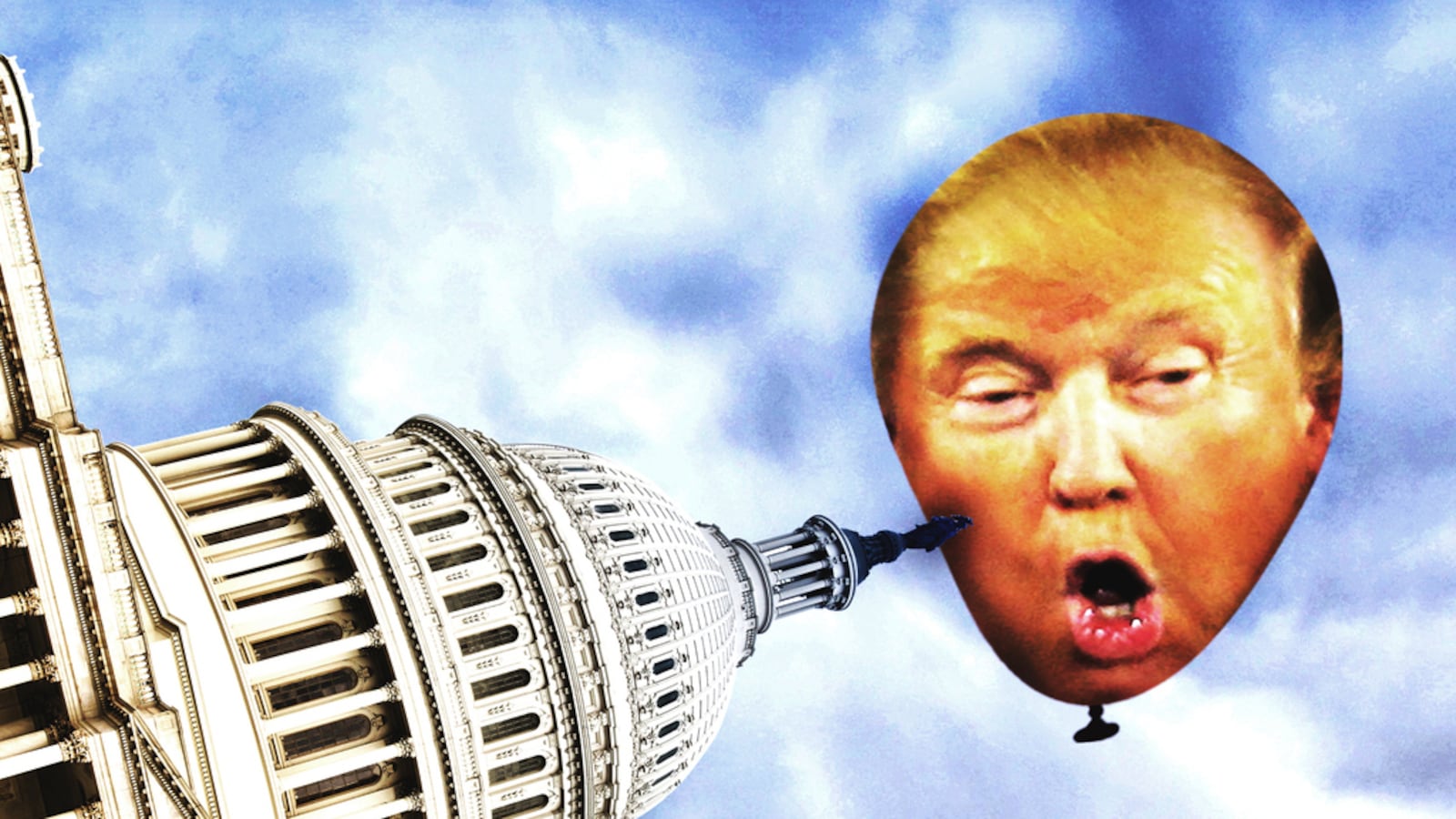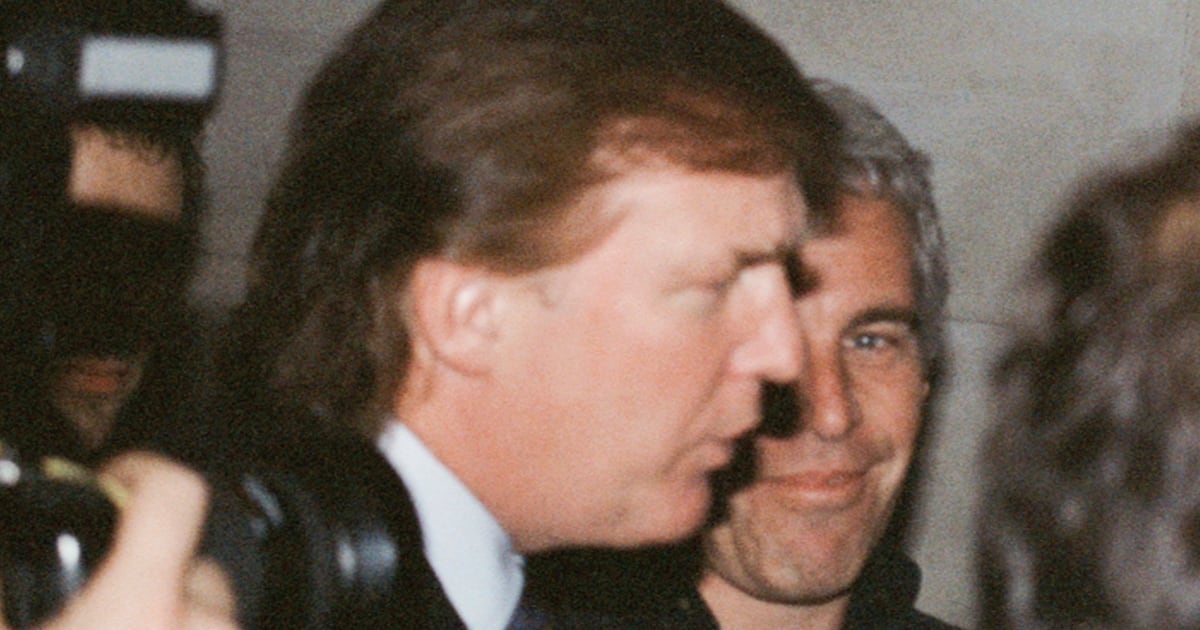“Everybody loves me,” Donald Trump said early on in his campaign for the Republican presidential nomination. It was a common refrain: “People love me! Everybody loves me!”
It’s true that Trump has found deep pockets of affection throughout the country—where he’s commanded crowds of tens of thousands everywhere from Biloxi to Fayetteville—but here in the District of Columbia, where Trump hopes to reside come January 2017 and where he will soon open a “luxury” hotel on Pennsylvania Avenue, a stone’s throw from his future home, that love is harder to find.
It’s partly by design: When it’s not about immigrant-bashing and fear-mongering, Trump’s campaign is primarily preoccupied with cutting down and sending up the political establishment, which is made up of the lawmakers, lobbyists, donors and “experts” on all of the above that reside in the Beltway. It’s no accident, then, that the Stop Trump forces—be it the personal office of Bill Kristol or the Make America Awesome political action committee—are headquartered here.
But it’s also a testament to the limitations of what you could feasibly call his charm. Trump often says that the groups he disparages—people from Mexico, in particular—actually love him, and he will point to thin statistics—like the majority of a few dozen Latinos who supported him in Nevada—to support his claims. But in D.C., you’ll find essentially an entire city to disprove his assertions that people find his tough-love tactics endearing. People don’t like him much at all here.
All of which makes his donors who do reside in town all the more fascinating.
Six hundred and fifty-eight thousand, eight hundred and ninety-three people live in the District of Columbia, according to the United States Census Bureau, and, just 391 of those residents cast votes for Trump in the Republican caucus on March 12. (Only Ted Cruz, who has spent his entire career in the Senate purposefully making enemies, fared worse.)
But even fewer D.C. residents have actually contributed money to the man: just nine in total.
A single digit’s worth.
More people appear onstage as part of Arcade Fire, in other words.
And together, the group—which includes three retired people, a mortgage banker, a pain specialist, a professor and some folks who just wanted trendy hats—contributed less than $4,000 to his campaign.
There’s Nancy Baeng, 70 years old and a former executive director at the Society for Neuroscience who’s lived in Washington since 1971. Baeng sent Trump $250 on Jan. 30, which was a pleasant surprise to her when The Daily Beast reached her by phone on Tuesday (she wasn’t sure the contribution had successfully gone through, since she was under the mistaken impression that—despite having donated herself—Trump does not accept donations).
“Oh, I think he will make America great again. I think we are really at a crossroads,” she said.
She was unconcerned by the spotty company she’s keeping, supporting The Donald in a place that regards him about as highly as it does a restaurant reviewer from The New York Times.
“I don’t feel like a minority at all,” she said.
“It doesn’t bother me at all! I think it’s unfortunate that there are all of those candidates supported by big money and Wall Street and lobbyists.”
“My next-door neighbor supports him, as does her husband, and I get emails from all over the United States from people who love him,” she added. “Today, George Clooney said he supports Hillary and I thought, ‘That’s America, that’s great! I happen to believe in Donald Trump and it doesn’t matter to me if I’m one of ten or one hundred.”
And then there’s Adam Conner, a Democratic operative who works for Slack, the San Francisco-based software company, and inadvertently donated to Trump’s campaign three separate times when he bought a bunch of Make America Great Again hats for his friends.
“The store purchases count as donations apparently,” Conner said when reached by The Daily Beast on Twitter on Monday.
“I thought they’d be good gifts and a fun collectors item and didn’t think I’d have very long to buy them. Guess I was wrong. Plus I had a few Republican friends who wanted them but didn’t want to support Trump, so I gave them as gifts,” he said.
Asked if he regretted the purchases—$343 in total, between Aug. 17 and Nov. 7—he said, “I mean the hats were popular gifts last year, and I think they’ll be a collectors item in the future, but I’m certainly done buying them now.”
Dr. Joseph Bellanti, a professor of pediatrics, microbiology, and immunology at Georgetown University, said he didn’t recall sending Trump $250 on Jan. 13, but perhaps his wife did it on his behalf.
“I sort of want to support the best candidate and I think, we’ll see how it works out,” he said of Trump. “I think he certainly is getting the support of a lot of Americans who feel that we need a change in the direction of our country.”
Asked if he was one such American, Bellanti said, “I would support him as I learn more about him and as we get into the presidential nomination process, he’s got a rough road ahead.”
Asked if his wife could be reached to confirm that she sent the donation, Bellanti placed his phone down and proceeded to have a 12-minute conversation, parts of which were audible, including, “You know who I’d like to see him put as vice president if he’d be willing to do it? Newt Gingrich.”
Without returning to the phone call, Bellanti then started playing the piano.
His wife never got on the line.
Similar to Conner, Bernie Sanders supporter Basel Dalloul, the CEO of the NOOR Data Network, S.A.E., a company that provides Internet access to the Middle East and North Africa, also didn’t intend to contribute to Trump’s campaign when he paid him $355 on Oct. 27.
“lol, you’re going to be very disappointed when I tell you. I bought some merchandise from the campaign store to give to some friends for shits and giggles,” he told The Daily Beast on Tuesday, via email.
“That’s it. No story. Feel the Bern!”
He signed his email with a smiley face.






